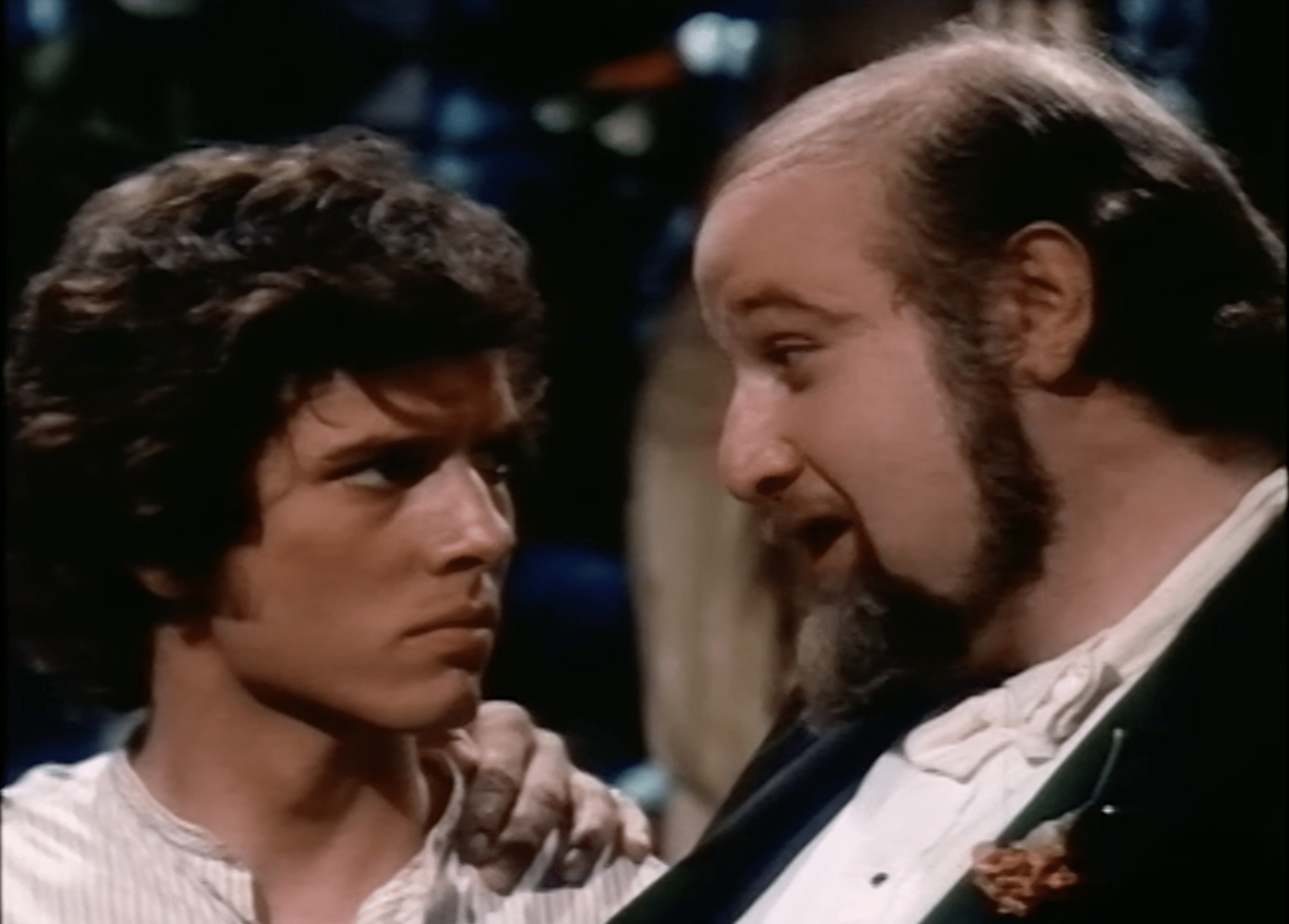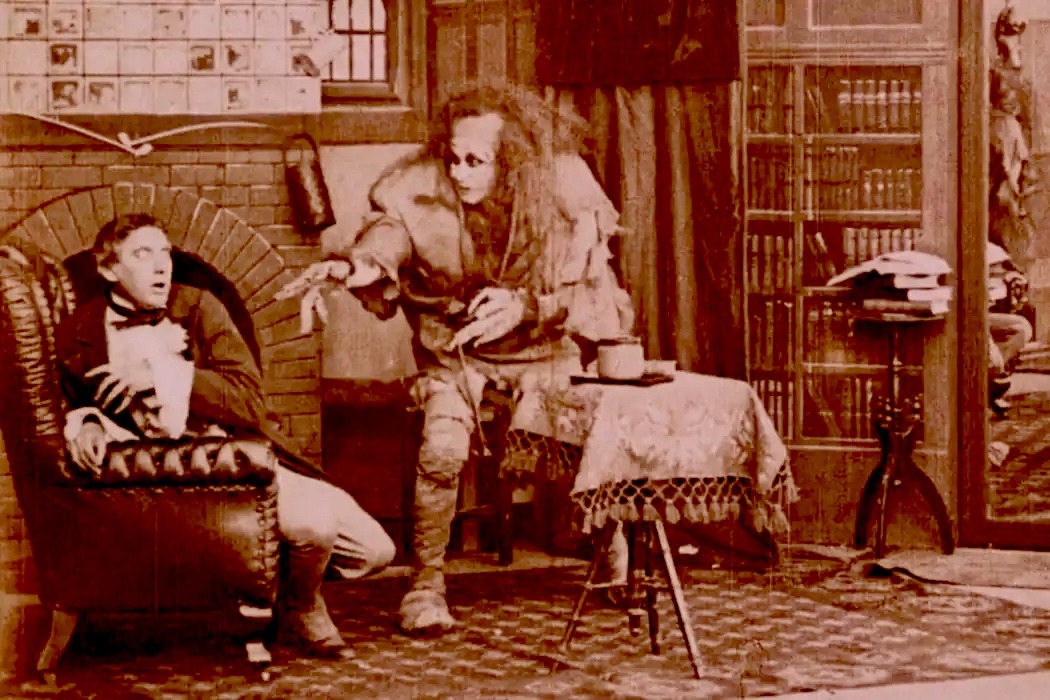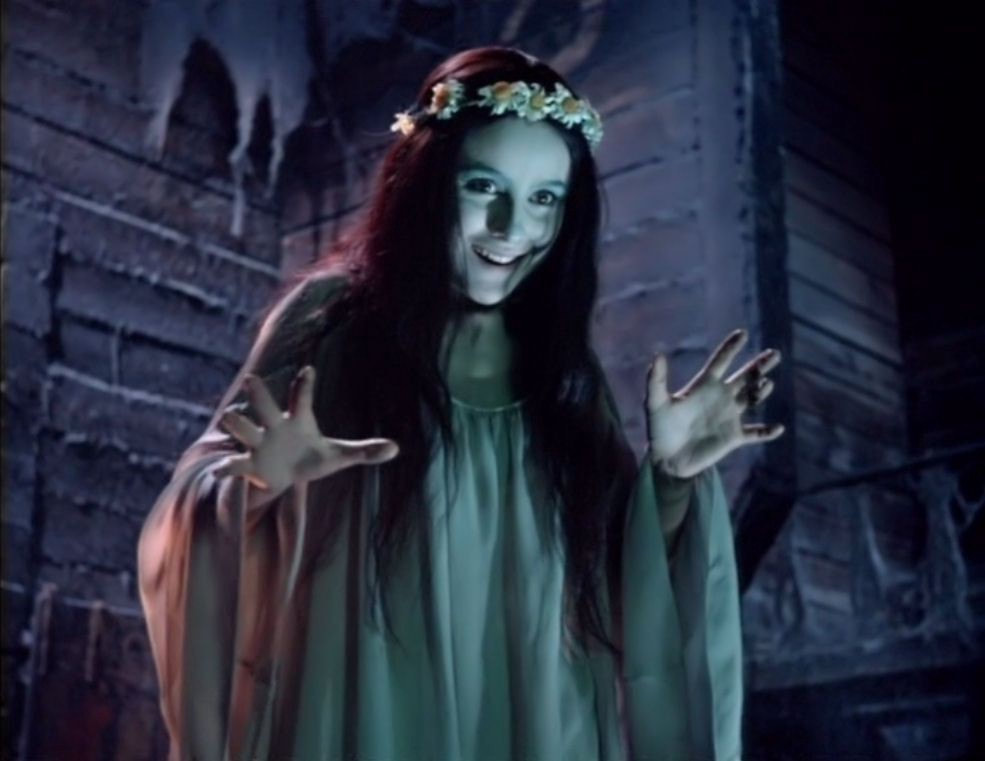
In 2015 Robert Eggers released his period, horror, film The Witch. As a whole, the film had its strengths and weaknesses, but the scene where Black Philip speaks is unforgettable. The film contains a carefully created and meticulously managed tension between what is real and what is imaginary. Even with the understanding that there is indeed a witch in the woods, it is unclear what forces are operating on the little farm on the frontier.
By the time we reach the scene with Black Philip we, like all the characters, are fearful and unsure of what is happening. Will Thomasin be branded a witch? Is she innocent or is she falling under the devil’s spell? Perhaps she is convincing herself that she is a witch because everyone around her suspects of her of being one. What about her troublesome sister and brother who tease her mercilessly? Are they under some dark influence? All of these questions are vibrating at a fever pitch when Thomasin enters the goat’s shed.
Thomasin’s brother and sister have said that Black Philip speaks to them, but they are babbling, little, brats who say all sorts of things. Why Thomasin enters Black Philip’s hutch is not entirely clear. It seems as though she may want to disprove once and for all that anything supernatural is afoot, but it is equally possible that the reverse is true. If Thomasin is feeling curious, if she is feeling tempted, it is in large part due to her being driven there by an overbearing, fearful, and cruel family.
The family is a conduit for examining 17th-century protestant culture. Early American Protestantism was a culture of fear and repression. The same culture that fueled the Salem Witch trials, the same culture that fuels today’s evangelicals. It is a culture of gritted teeth and white knuckles that fears human nature and sees each newborn child as a potential disaster who needs to be strictly trained in order to avert evil.
This early American brand of Protestantism was a blend of Christianity and capitalism resulting in sayings like “idle hands are the devil’s workshop.” The colonial settlements were all under contracts. They were indentured to those back home who fronted the money to send them to America. The colonists had to send back a steady stream of crops and materials to pay their debt. To stay in debt was a sin, and they lived in constant fear of displeasing God through their laziness, indulgences, urges, and even their existence in general. For them, god was a cruel, omnipresent, big brother who took any opportunity to cast his subjects into the fiery abyss. Here is an excerpt from a sermon given by Jonathon Edwards in 1741,
“The God that holds you over the Pit of Hell, much as one holds a Spider, or some loathsome Insect, over the Fire, abhors you, and is dreadfully provoked; his Wrath towards you burns like Fire; he looks upon you as worthy of nothing else, but to be cast into the Fire; he is of purer Eyes than to bear to have you in his Sight; you are ten thousand Times so abominable in his Eyes as the most hateful venomous Serpent is in ours. You have offended him infinitely more than ever a stubborn Rebel did his Prince: and yet ’tis nothing but his Hand that holds you from falling into the Fire every Moment:”
Thomasin’s entering the goat’s hutch is a step away from the spiritual and toward the animal nature of earthly existence. It is a step toward the chaos of beasts and flesh. It is a dark corner where temptation lies in a cloud of fear and titillation.
Thomasin looks tired and bit dazed as she addresses the goat, “Black Philip I conjure thee to speak to me. Speak as thou doth speak to Jonas and Mercy. Doest though understand my English tongue?” She stares at him but the camera does not switch point of view. We remain steadily focused on her young face. She waits for a response but none comes. Resolute she demands “Speaks to me” but still no answer comes. Slowly a look of disappointment comes over her and she turns to leave. Just as she turns away a whispered voice addresses her “What does’t thou want?” Keeping with the same unedited and still shot, Thomasin turns around and asks “What canst thou give?” Thomasin’s lips are slightly parted as if she is waiting and receptive. Black Philip answers “Wouldst thou like the taste of butter? A pretty dress? Wouldst thou like to live deliciously?” We never see the goat, only Thomasin dimly lit face as she whispers “yes.”

Its a completely shocking and intensely creepy scene. The audience is simply not expecting the goat to speak. Since the camera stays on Thomasin it is still possible that he is not speaking and that what we are witnessing is Thomasin’s auditory hallucination.
The scene continues with a slow but steady seduction leaving Thomasin naked and in league with the devil. She is a girl succumbing to the irresistible force of adolescence. She offers up her newly blossoming body to the immediate gratification she has long been forced to defer.
The dangerous grass she now treads on looks greener only because she comes from a baron tundra of anxiety, oppression, and isolation. The binary set by the protestant world view creates two diametrically opposed and mutually exclusive worlds without any room for middle ground. You are destined for one of two places. There is no purgatory for the protestants, only salvation or a lake of fire. Once you are trapped in this black and white vision of the world life becomes a never-ending series of tests. A marathon of denial, deferral, repression, and fear.
Your own body becomes your enemy, especially when it enters the sexually charged transformation of adolescence. Your own natural impulses and thoughts become ill-willed forces drawing you toward your destruction, while the unreasonable and unattainable purity of the angels shines over you like the sword of Damocles. Ashamed of your inadequacies you seek solace in the simple and accessible pleasures that the devil so generously offers, but the devil provides something even greater than sensual satisfaction. When Thomasin steps out of the hutch and into the light she has no taste of butter or pretty dress but she is free of the frigid anxiety that has imprisoned her all her life. She is empowered with a new vision of a world that is now hers to do with as she pleases.

If you enjoyed this article click here for more
www.filmofileshideout.com/archives/lukas-feigefelds-hagazussa




went to the link and been reading through your stuff all morning. really great writing and I love the scenes you talk about. the witch is one of my favourite movies and you summed up thomasin's transformation and journey so well. keep doing what you're doing 👍
Redditor